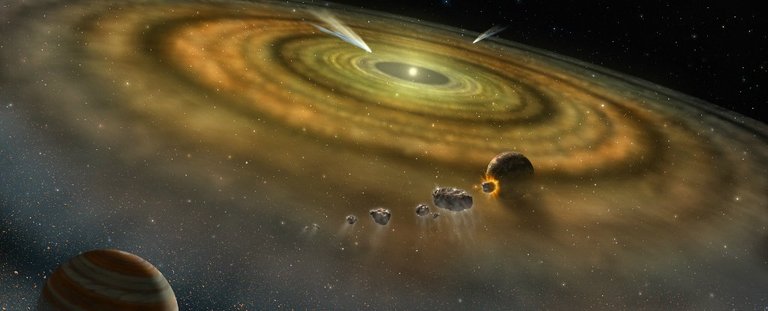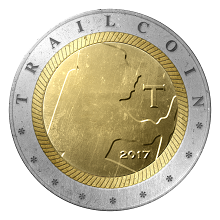We probably peaked too soon for aliens.

Image Credit to ScienceAlert.com
At roughly 13.8 billion years old, the Universe might seem like it's been around for a long time, but a new study suggests that Earth is one of the first habitable planets to form - and we're probably too early to the party to get a chance to meet future alien civilizations.
The research looked at data from the Hubble and Kepler space telescopes and predicted that 92 percent of the Universe's habitable planets have yet to be born. And most won't form until after our Sun burns out in 6 billion years' time.
It's kind of depressing to contemplate that, as a planet, we may have peaked way too soon. But another way to look at it is the fact that we're likely to be one of the only civilizations with the ability to look back at the birth of the Universe.
"Any far-future civilizations that might arise will be largely clueless as to how or if the Universe began and evolved," explains the Space Telescope Science Institute in the US, which led the research. And that's a pretty humbling thought.
"Our main motivation was understanding the Earth's place in the context of the rest of the universe," said lead researcher Peter Behroozi. "Compared to all the planets that will ever form in the Universe, the Earth is actually quite early."
The researchers used the Hubble and Kepler space telescopes to look as far away as we possibly can - which, when you're looking in space, also means looking as far back in time as we possibly can - to understand how many stars have formed already, and how many will form in the future.
They found that although the Universe was making stars at a much faster rate about 10 billion years ago, it only used a tiny fraction of the Universe's hydrogen and helium. Which means that even though star production has slowed down, it can keep going for a very, very long time.
"There is enough remaining material [after the big bang] to produce even more planets in the future, in the Milky Way and beyond," said one of the researchers, Molly Peeples.
In fact, the last star isn't predicted to burn out until 100 trillion years from now. Given the fact that in our galaxy alone there are estimated to be 1 billion potentially habitable planets, it makes sense that future stars and galaxies that are born will have similar potential to house life.
The researchers also used the data to predict that future Earths are more likely to appear inside galaxy clusters and dwarf galaxies, which have yet to use up all their gas for building stars and accompanying planetary systems. Our Milky Way Galaxy, on the other hand, is all tapped out.
So there you have it, folks, as far as habitable worlds go, we've only just begun. Earth is in the first 8 percent, and who knows what the next 100 trillion years, and the other 92 percent of habitable planets, will bring. As the Space Telescope Science Institute puts it: "That's plenty of time for literally anything to happen on the planet landscape."
Literally anything, except us, being around to see it :(
The research has been published in Monthly Notices of the Royal Astronomical Society. Credit to Fiona Macdonald
More about aliens here: https://steemit.com/science/@vjysheth/aliens
Check out my social media:
https://www.Twitter.com/General_Zombi3
Hello @vjysheth,
Congratulations! Your post has been chosen by the communities of SteemTrail as one of our top picks today.
Also, as a selection for being a top pick today, you have been awarded a TRAIL token for your participation on our innovative platform...STEEM.
Please visit SteemTrail to get instructions on how to claim your TRAIL token today.
If you wish to learn more about receiving additional TRAIL tokens and SteemTrail, stop by and chat with us.
Happy TRAIL!

Hi! I am a robot. I just upvoted you! I found similar content that readers might be interested in:
http://www.sciencealert.com/earth-was-one-of-the-first-habitable-planets-in-the-universe-and-most-are-yet-to-be-born-study-finds
Thanks @cheetah, I credited them above :) I wanted to share this amazing post with the community since it blew my mind.
This post has been ranked within the top 25 most undervalued posts in the second half of Jan 17. We estimate that this post is undervalued by $11.26 as compared to a scenario in which every voter had an equal say.
See the full rankings and details in The Daily Tribune: Jan 17 - Part II. You can also read about some of our methodology, data analysis and technical details in our initial post.
If you are the author and would prefer not to receive these comments, simply reply "Stop" to this comment.
Thanks for letting me know again :)
Congratulations @vjysheth! You have received a personal award!
Click on the badge to view your own Board of Honor on SteemitBoard.
Congratulations @vjysheth! You received a personal award!
Click here to view your Board
Do not miss the last post from @steemitboard:
Congratulations @vjysheth! You received a personal award!
You can view your badges on your Steem Board and compare to others on the Steem Ranking
Vote for @Steemitboard as a witness to get one more award and increased upvotes!